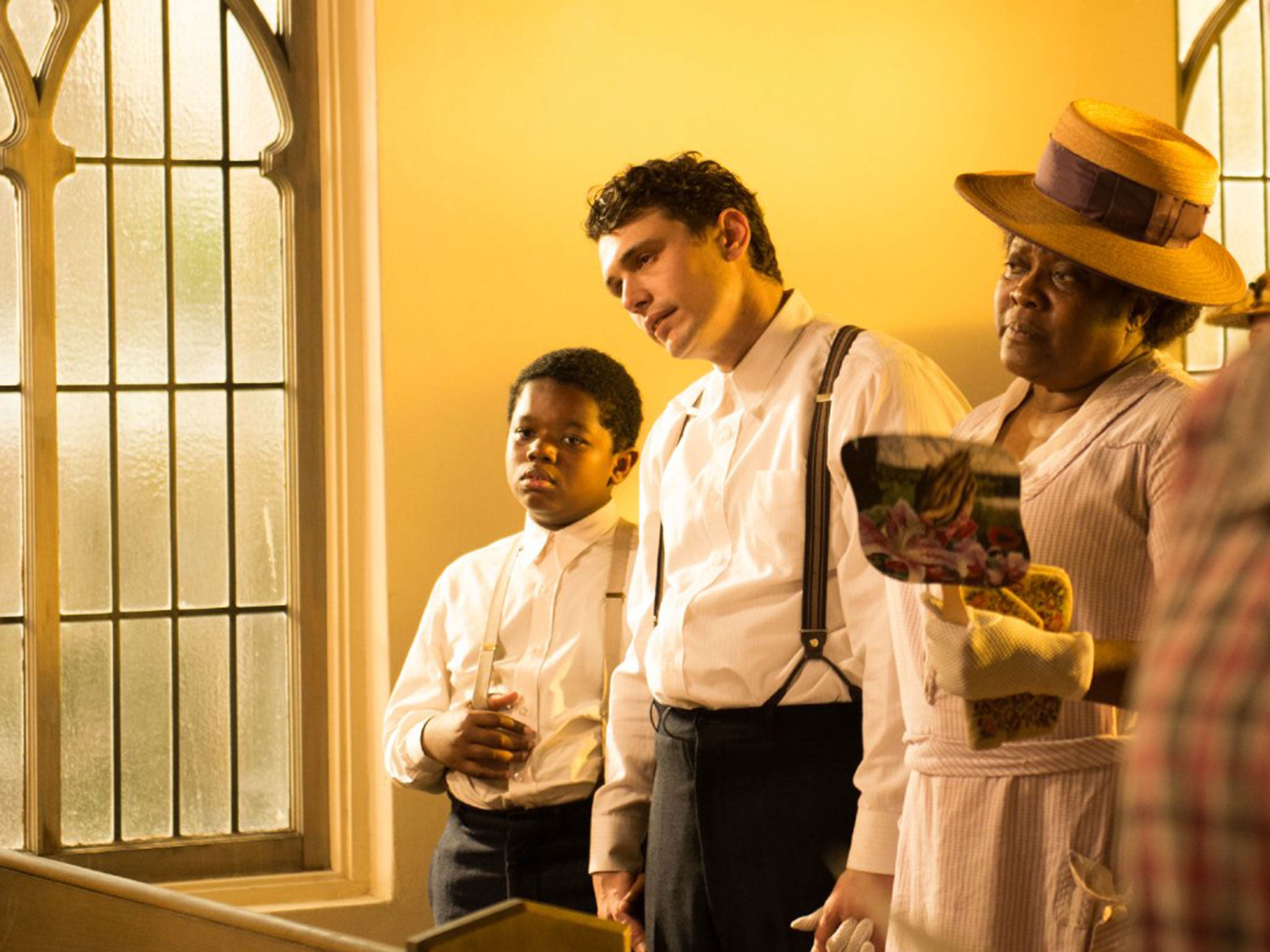The Sound and the Fury, first look film review: James Franco's most ambitious project is his best film by far
Toronto Film Festival 2014: Franco is on the road to gaining legitimacy

Your support helps us to tell the story
From reproductive rights to climate change to Big Tech, The Independent is on the ground when the story is developing. Whether it's investigating the financials of Elon Musk's pro-Trump PAC or producing our latest documentary, 'The A Word', which shines a light on the American women fighting for reproductive rights, we know how important it is to parse out the facts from the messaging.
At such a critical moment in US history, we need reporters on the ground. Your donation allows us to keep sending journalists to speak to both sides of the story.
The Independent is trusted by Americans across the entire political spectrum. And unlike many other quality news outlets, we choose not to lock Americans out of our reporting and analysis with paywalls. We believe quality journalism should be available to everyone, paid for by those who can afford it.
Your support makes all the difference.This is the third adaptation of a so-called difficult novel that renaissance man James Franco has brought to film festivals in the space of the year.
His take on Cormac McCarthy’s Child Of God screened at last year’s Venice Film Festival while at Cannes in May he first tested his ability to adapt William Faulkner with As I Lay Dying.
As seems the norm with Franco’s directorial efforts (he has directed a dozen features, often using the same team of cast and crew) these films disappeared without leaving much of a trace. That’s likely to change now because this, Franco’s most ambitious project, is his best film by far.
Different sections of the book are told from the first-person perspective of different characters, in non-linear streams of consciousness, which has led to the widely held belief that Faulkner’s most-acclaimed novel could not be adapted for the screen. Franco proves this wrong.
Telling the story in three chapters, rather than the book’s four, he concentrates on the perspectives of the three Compson brothers at the heart of the tale, Benji (Franco), Quentin (Jacob Loeb) and Jason Compson IV (Scott Haze). In simplifying the narrative to tell the story of the brothers through their thoughts, feelings and relationships with their sister Caddy (Ahna O’Reilly), he has done a sterling job.
The film is far easier to consume and comprehend than the novel. It starts with a voiceover that reveals how the once great and rich Compson family has run into trouble in recent generations through the folly of the brothers’ grandfather and father.
Set in Mississippi at the turn of the 20th Century, Franco reduces the novel to a family tale of love, compassion, melancholy and jealousy, with ethereal poetic voiceovers, jumps in time, and experiential narrative that is a direct descendant of the work of Terrence Malick.
Franco has given himself the plum role of the mentally incapacitated Benji. He moans, salivates and moves heavily in what is a largely impressive performance of the type that often wins awards, although the part is not big enough for him to be considered for anything other than supporting actor.
It’s Benji’s 33rd birthday and his perspective on the world is revealed through his inner-voice, that of a child. As one of the black servants comments, “He’s been 3 for 30 years.” It’s in this section that Franco’s directing is at its best.
The plot is that only daughter Caddy has brought shame onto the family by falling in love with and then getting pregnant out of wedlock. All the brothers react differently to her situation. In the second section told from Quentin’s perspective we learn the views of her father, played by Tim Blake Nelson. Nelson is given the job of showcasing Faulkner’s lyrical pose in a brilliant monologue that occasionally doubles as voiceover.
In these moments Franco’s appreciation of the novelist is most apparent. Finally Franco the director is on the road to gaining legitimacy.
Join our commenting forum
Join thought-provoking conversations, follow other Independent readers and see their replies
Comments